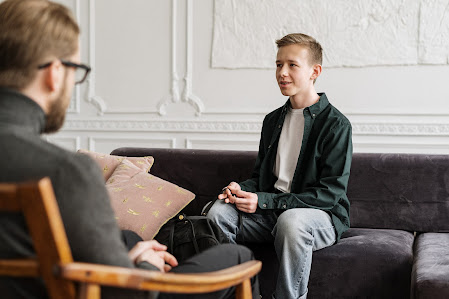Summer Sadness Is Real: Understanding Summertime Depression
When people talk about seasonal depression, they usually
think of the dark, cold winter months. But for some, depression actually shows
up in the sunniest season of all.
Yes — summer sadness is real.
Also known as reverse seasonal affective disorder (SAD),
this form of depression can make it hard to enjoy the very time of year
everyone else seems to be celebrating.
☀️ What Is Reverse SAD?
While traditional SAD occurs in fall or winter due to
reduced sunlight and shorter days, reverse SAD (also called
summer-pattern SAD) happens during late spring and summer.
It’s less commonly talked about, which can leave people
feeling isolated and confused — especially when everyone around them seems
energized and upbeat.
🧠 Symptoms of Summer
Depression
Summer depression might look like:
- Trouble
sleeping (insomnia)
- Loss
of appetite or weight loss
- Anxiety
or restlessness
- Feeling
“off,” agitated, or hopeless
- Social
withdrawal or a sense of not belonging
- Increased
irritability or overwhelm
These symptoms often go unnoticed or get mislabeled as
stress, burnout, or even laziness. But if your mood dips every summer, it’s
worth paying attention.
💡 Why Does Summer
Depression Happen?
The causes aren’t fully understood, but common triggers
include:
- Disrupted
routines: School breaks, vacations, or longer daylight hours can throw
off sleep and structure.
- Heat
sensitivity: Some people feel mentally and physically drained by hot
weather.
- Social
comparison: Seeing everyone “living their best life” on social media
can increase isolation or FOMO (fear of missing out).
- Body
image stress: The pressure to look a certain way in summer clothing
can amplify self-esteem issues.
- Life
changes: For students, teachers, or seasonal workers, summer may bring
big transitions or financial stress.
🌿 Coping with Summer
Sadness
If summer depression resonates with you, here are a few ways
to care for yourself:
1. Stick to a routine.
Maintain consistent sleep and eating patterns. Your brain
thrives on rhythm — even in summer.
2. Cool down your space.
Use fans, blackout curtains, or cooling products to create a
more comfortable environment.
3. Limit social comparison.
Curate your feed and take breaks from social media when
needed. You don’t have to compete with anyone’s highlight reel.
4. Plan things you enjoy.
Create your own version of summer joy, whether that’s indoor
hobbies, shaded walks, or quiet cafes.
5. Talk to a therapist.
You’re not imagining this. Therapy or support groups can
help you explore patterns, build coping strategies, and feel less alone.
🌈 You Don’t Have to Love
Summer to Be Okay
It’s okay if summer feels heavy instead of light. Your
brain’s response to seasonal change is valid. You don’t owe anyone a constant
smile just because the sun is out.
Take care of yourself in the way you need, not the
way you think you “should.” Because mental health doesn’t take a summer
vacation — but you can still give yourself rest, compassion, and support.



Comments
Post a Comment